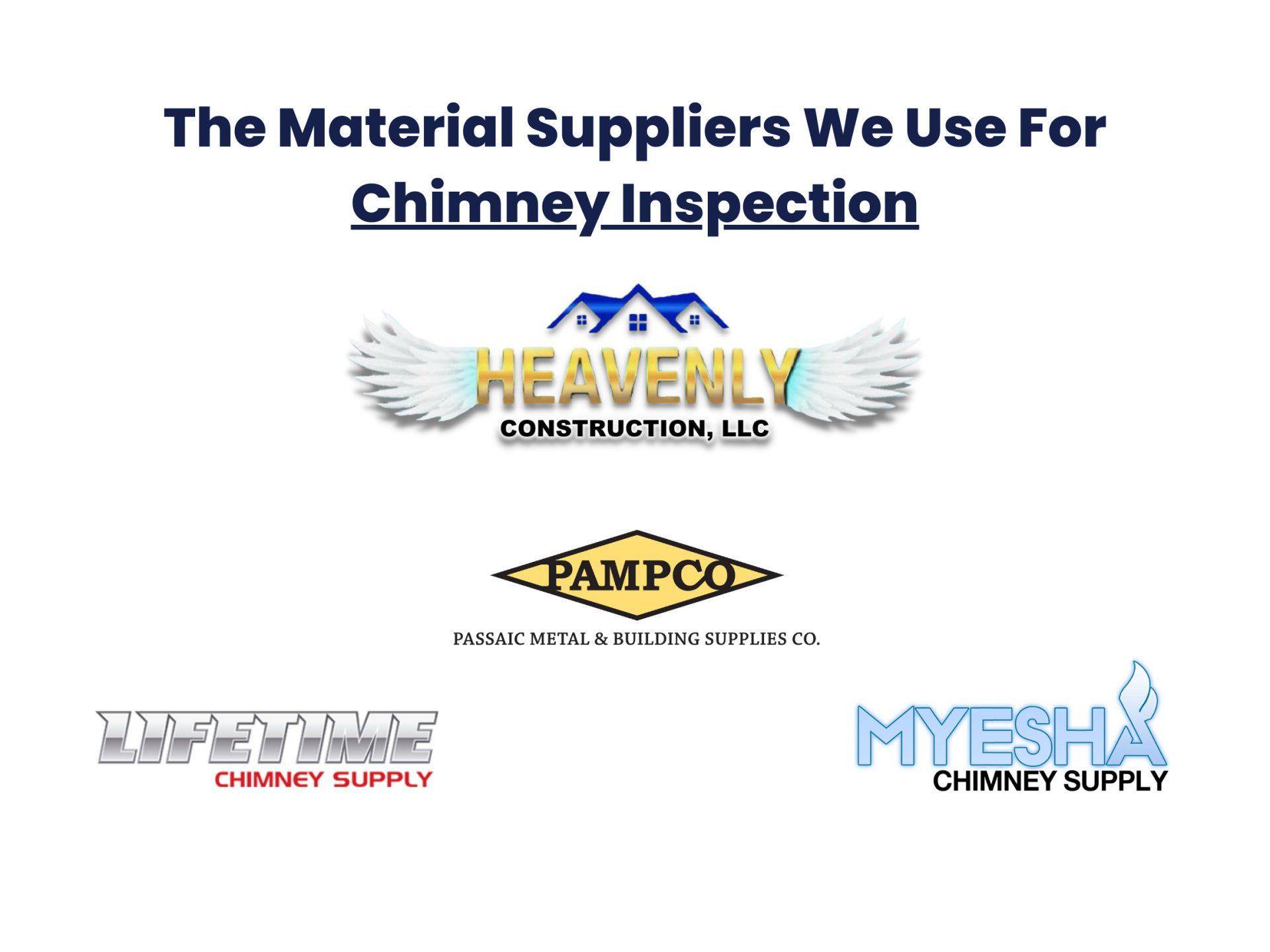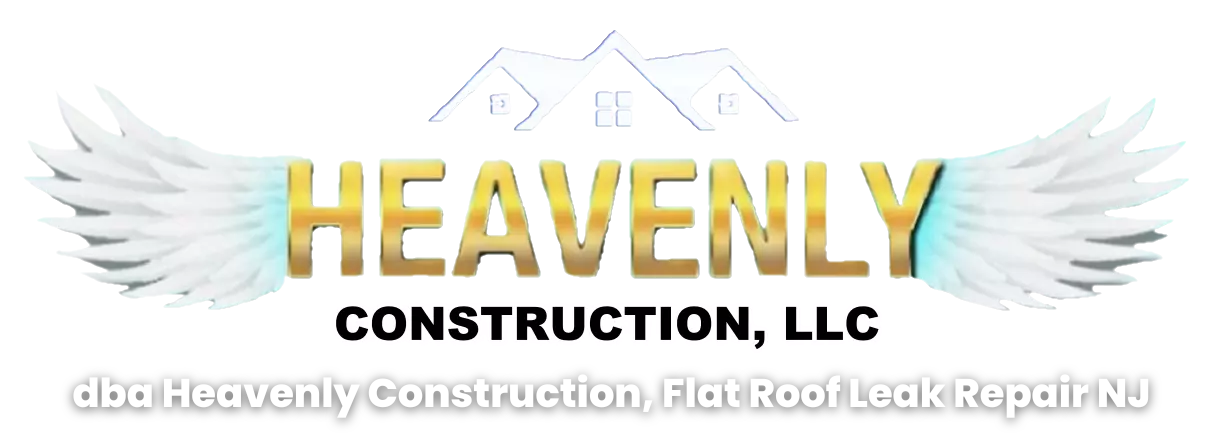Chimney Inspection in NJ
A chimney is one of the most important parts of your home. It can save you big bucks in repairs if it's inspected regularly, and when something goes wrong, you can call on professionals for help immediately.
A chimney inspector looks at every part of your chimney system to see that it's safe and operating as it should be. They check that all connections are tight and free from leaks. Inspectors make sure no cracks or loose mortar will allow heat out or smoke in. And they look for problems with the damper, which helps keep heat inside when there's no fire in the fireplace.
Simply having a professional inspect your chimneys once a year is not enough though; some manufacturers recommend inspections twice yearly, or even quarterly, depending on the level of use.

The Three Levels Of A Chimney Inspection
Have you ever wondered why your fireplace never seems to work as well as it used to? It is likely that your chimney has deteriorated over time and needs some major repair or maintenance. A chimney inspection is an excellent way to determine if a problem exists.
A chimney inspection is a checkup for your chimney to ensure that it's in good working order and free of any potential safety hazards. Our chimney sweeps perform this procedure by arriving and looking at your chimney, both inside and out. They'll be looking for any signs of damage, wear and tear, and anything that could cause a fire.
Chimneys, fireplaces, and vents should be inspected at least once a year to ensure they are in good condition and free from deposits. If necessary, chimney cleaning, maintenance, and repairs should be carried out. To ensure this standard is met, three levels of chimney inspections were created and standardized by the NFPA.
If you're concerned about the condition of your chimney, then the chimney services that we provide are something you should consider. It's better to be safe than sorry, after all. So don't wait; get your chimney inspected today!
Level 1 Chimney Inspection NJ
A Level 1 chimney inspection is a basic, commonly-needed inspection recommended for homes when the fireplace is not experiencing any issues and has not changed or been damaged. During this inspection, this service will include a visual check on all accessible portions of the chimney's interior and exterior.
You can expect us to examine the masonry for signs of water damage and check the chimney liner for potential creosote buildup. Level 1 inspections are essential to ensure the safety and integrity of your chimney.
We typically recommend a level 1 inspection if any: of the following are true:
- You have a prefabricated metal or factory-built wood-burning fireplace that has never been inspected.
- Your home has never had a chimney inspection, and you plan to use your fireplace soon.
- Your home has never had a chimney inspection, and you have not used your fireplace in many years.
- Your home is in an area with high winds, which could result in debris being blown into your chimney.
- You have had recent renovations done on your home that may have affected your chimney.
- You plan to use your fireplace for the first time after a long period of disuse.
- You plan to sell your home and want to get a chimney inspection for peace of mind or to address any issues before putting your home on the market.
Level 2 Chimney Inspection NJ
A Level 2 chimney inspection is a comprehensive visual inspection, including a manual flue sweep with a unique tool—or "snake"—to pull out soot buildup from inside the chimney. If you use your fireplace frequently, a level 2 should be done three times per year. For those with fireplaces who only burn occasionally, an annual level 2 inspection is recommended. It can also be helpful if you've noticed any changes in how your fireplace operates or if there are any cracks around the damper.
A level 2 inspection will require closed-circuit cameras to get a complete look at the chimney and flue. Access to surrounding areas such as crawlspaces, basements, or attics may be necessary.
We recommend a level 2 inspection if:
- There has been a change in the way the fireplace is used (for example, burning wood instead of gas)
- The chimney has been damaged in some way
- There is a blockage in the chimney or flue
- You are buying a new home and want to ensure the fireplace and chimney are in good condition.
- Changes in ownership - sale or transfer
- The fireplace or stove has been relined
- There has been any water damage to the chimney
- The flue has been damaged or is in disrepair
- There are signs of creosote buildup
- The chimney cap is missing or damaged
- You plan to make any changes to the fireplace or stove
Level 3 Chimney Inspection NJ
Level 3 inspections are the most in-depth and invasive type of chimney inspection. Typically, we only recommend this level when severe structural damage, such as a chimney fire or other catastrophic event. In addition, a Level 3 inspection often involves removing part of the chimney, which can cause damage to your home's walls, ceilings, or siding. Usually, this is not taken lightly and is only recommended when necessary.
A level 3 is just like a level 2, with the addition of an infrared camera to inspect chimneys more thoroughly. This service can be helpful if you want to know where there's soot buildup inside your chimney, especially if it appears somewhere that's hard to reach on your own. It can even detect problem areas before they are visible to the naked eye.
The Parts Of The Chimney We Inspect
A good portion of the outside (the masonry) and inside (flue) are inspected during a chimney inspection. We do not check all portions; for example, if the vent ends several feet above the roofline, it is not within our scope to inspect that because we physically cannot reach it.
If there is an issue with a flue that ends above the roofline, it is best to have a roofing contractor inspect the chimney's flashing and repair any flashing issues. We will also inform you of any damages to your chimney crown.
What You Can Expect From This Service
As a homeowner, you can expect a complete report of your fireplace and chimney system after being inspected. Our chimney inspectors will note any cracks or holes that may need to be repaired, how well the flue is drawing (if at all), and whether or not there are issues with creosote buildup in the chimney walls.
If you're buying a new home, an inspection beforehand can save you from making costly repairs. We generally want to ensure that the flue liner is clean of soot, which can lead to carbon monoxide poisoning if left unchecked.
Open Versus Closed Chimneys
Even basic maintenance like regular sweeping can keep an open chimney safe from becoming obstructed. This means less danger of smoke inhalation, health complications, and/or house fires caused by inadequate ventilation. As we perform our video scanning procedure, we will show you the playback so you are able to better understand the differences.
Why You Should Hire Us For An Inspection
All of our contractors are knowledgeable regarding the safety guidelines and procedures provided by the CSIA (Chimney Safety Institute of America), the NFPA (National Fire Protection Association), and the NFI (National Fireplace Institute). We're always up-to-date on current regulations, codes, and industry standards. We also provide a 100% satisfaction guarantee for any service we offer.
So don't let creosote or other hazards put your family at risk; contact us today to schedule an inspection and keep your property safe.
A Summary Of Our Chimney Inspection Process
When you hire our chimney inspectors, they will inspect your fireplace or wood stove according to the following steps:
- Look for cracks or other physical damage in the walls of your chimney or fireplace opening. If present, these would need immediate attention because moisture could through them which will cause further damage to your chimney or create safety hazards.
- After the inspection is complete, you may be given a full report with repairs and costs involved if needed.
- If no repairs are needed, you can schedule a maintenance inspection for periodic checkups to prevent any problems from occurring down the road.
Common Questions About Chimney Inspections
Here are some of the most frequently asked questions we receive about chimney inspections.

